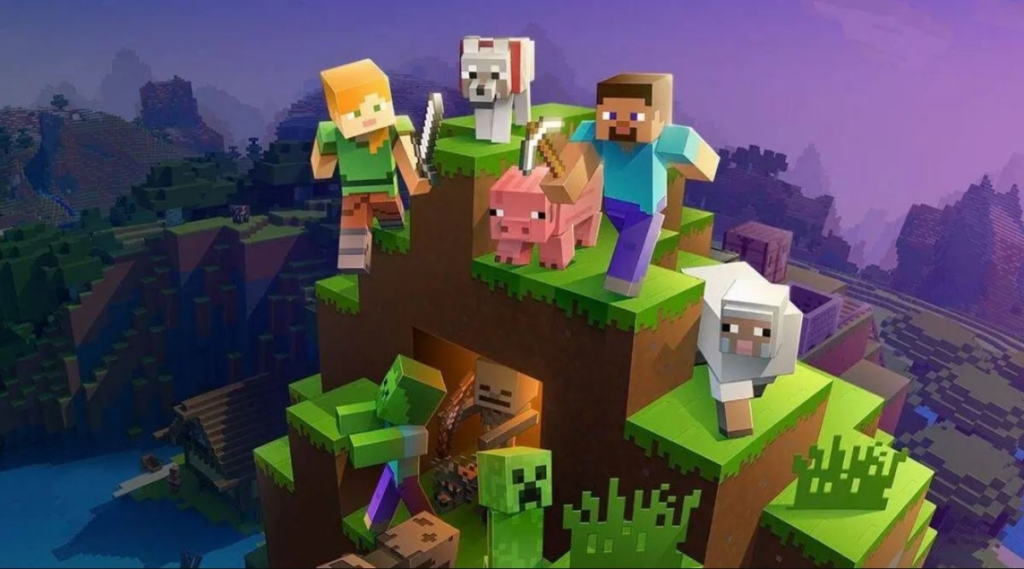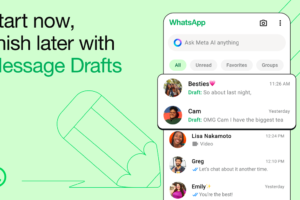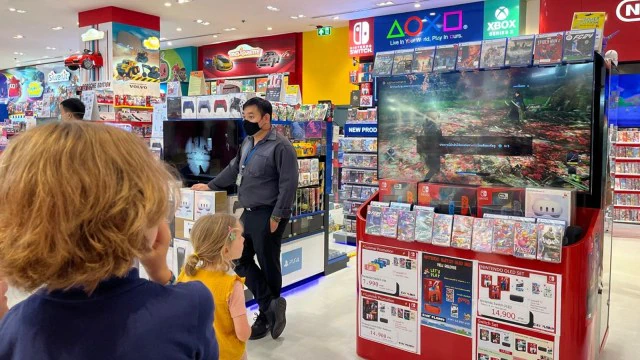Nintendo has discreetly conducted a playtest, revealing its venture into creating its inaugural MMO (massively multiplayer online) game to compete with Minecraft and Roblox.
Nintendo is rumored to be in the process of creating an MMO game that could rival the success of Minecraft and Roblox. The Japanese company is venturing into the realm dominated by these popular games, potentially developing an MMO-style game where players can unleash their creativity and construct virtual worlds. While Nintendo initially aimed to keep this project under wraps, recent developments suggest that the secret is out in the open.
Nintendo recently made headlines by opening applications for a Switch online playtest, limiting participation to 10,000 users to trial a new Nintendo Switch Online feature. The playtest commenced on October 23 and is scheduled to conclude on November 5. While participants were not required to sign an NDA, Nintendo urged them to keep details confidential. Nevertheless, unauthorized screenshots of the FAQ surfaced on various platforms, prompting Nintendo to issue copyright strikes to prevent further leaks. Unveiling their plans, it was revealed that the online test revolved around an undisclosed MMO venture centered on collaborative planet construction and development.
What are MMOs?
In the realm of online gaming, MMO, an abbreviation for “massively multiplayer online,” thrives as a genre that unites a vast array of actual players within a shared server space. Unlike solitary gaming experiences, MMOs emphasize social connections by fostering real-time interactions between gamers who collaboratively shape the virtual universe. These games often incorporate virtual economies enabling players to trade in-game currency for various items, while continually expanding their content to maintain player engagement. The hallmark of MMOs lies in their exceptional interactivity, distinguishing them from traditional gaming formats. Notable examples include Fortnite, FarmVille, World of Warcraft, and Minecraft.
Nintendo has not disclosed the specific game details or its complete set of features as of now. What is known is that this upcoming game marks the company’s debut into the MMO (massively multiplayer online) gaming genre. The ongoing playtest affirms that the game can be downloaded and demands 2.2GB of storage space. As per the FAQ section, the game unfolds on a vast and sprawling planet, encouraging players to collaborate in constructing and designing. Throughout their gameplay, players will have the opportunity to explore uncharted territories, encounter adversaries, and gather crucial resources to enrich their journey.
A unique feature in the game is the introduction of beacons, special items that grant players the ability to construct within a designated zone established by their beacon. Within this Beacon Zone, construction and editing privileges are exclusive to the beacon owner, whereas beyond the beacon boundaries, construction is open to all. Moreover, the FAQ outlines a communal hub known as the “Dev Core,” offering players a space to congregate, engage with one another, and enhance their progression.
Two forms of currency will exist: Dev Points, acquired by engaging in building and crafting activities, and Connex Points, obtained by engaging in interactions with fellow players.Game footage has not been released yet, but the MMO-style game appears to be a brand new IP from Nintendo and doesn’t seem to feature familiar Nintendo characters. It’s also unknown if Nintendo is developing the game on its own or if a third-party developer is behind it. We will find out soon.

Nintendo’s initial foray into creating an MMO (massively multiplayer online) game indicates a strategic focus on capturing a vast player demographic that is already immersed in popular titles like Minecraft and Roblox, the former alone boasting millions of active users each month. These games primarily cater to school-aged children and their parents, making them the primary target audience.
Minecraft and Roblox, although not the usual suspects in the world of gaming, have managed to captivate a vast audience. Unlike Minecraft, Roblox stands out as a platform hosting a plethora of games, boasting a library of over millions of user-created games. Roblox can be best defined as a hub for player-driven content, offering a diverse array of gaming experiences.
Both Minecraft and Roblox are immensely popular due to their social features, such as the option to connect with friends and communicate with them in real-time during gameplay. One significant aspect that sets Roblox apart, especially appealing to children, is its focus on fostering “unstructured play.” With Roblox Studio, a dedicated software, anyone can develop a game or a virtual space within the Roblox platform, essentially entering a metaverse where users can not only engage in or create games but also socialize with friends and potentially earn revenue by receiving a share of in-game transactions made with Roblox’s virtual currency, Robux.
Since 2018, Nintendo introduced a subscription service named Switch Online (NSO). At its inception, the service failed to impress, but recently, especially in the aftermath of the pandemic, it has undergone significant enhancements. Subscribers now enjoy a wider selection of games, spanning from cherished classics of bygone eras such as N64, Sega Genesis, and Game Boy Advance. As Nintendo continues to enhance its offerings, the subscription service might play a pivotal role in the introduction of a successor to the Switch console. The importance of Switch Online to the company lies in its superior profit margins compared to hardware products, its reliability through recurring billing, and its capacity to diversify revenue streams from the expanding user base.
Nintendo, with a global subscriber base exceeding 38 million for its paid Nintendo Switch Online service, appears to be strategically focusing on expanding its user community for this key service. A clear indicator of this intent is evident in the company’s decision to introduce exclusive benefits for members, such as the recent launch of the Alarmo clock limited to Switch Online subscribers and the exclusive opportunity for members to test a new IP through dedicated applications. These moves underscore Nintendo’s commitment to enhancing its membership services, potentially shaping the foundation of its future business endeavors.










